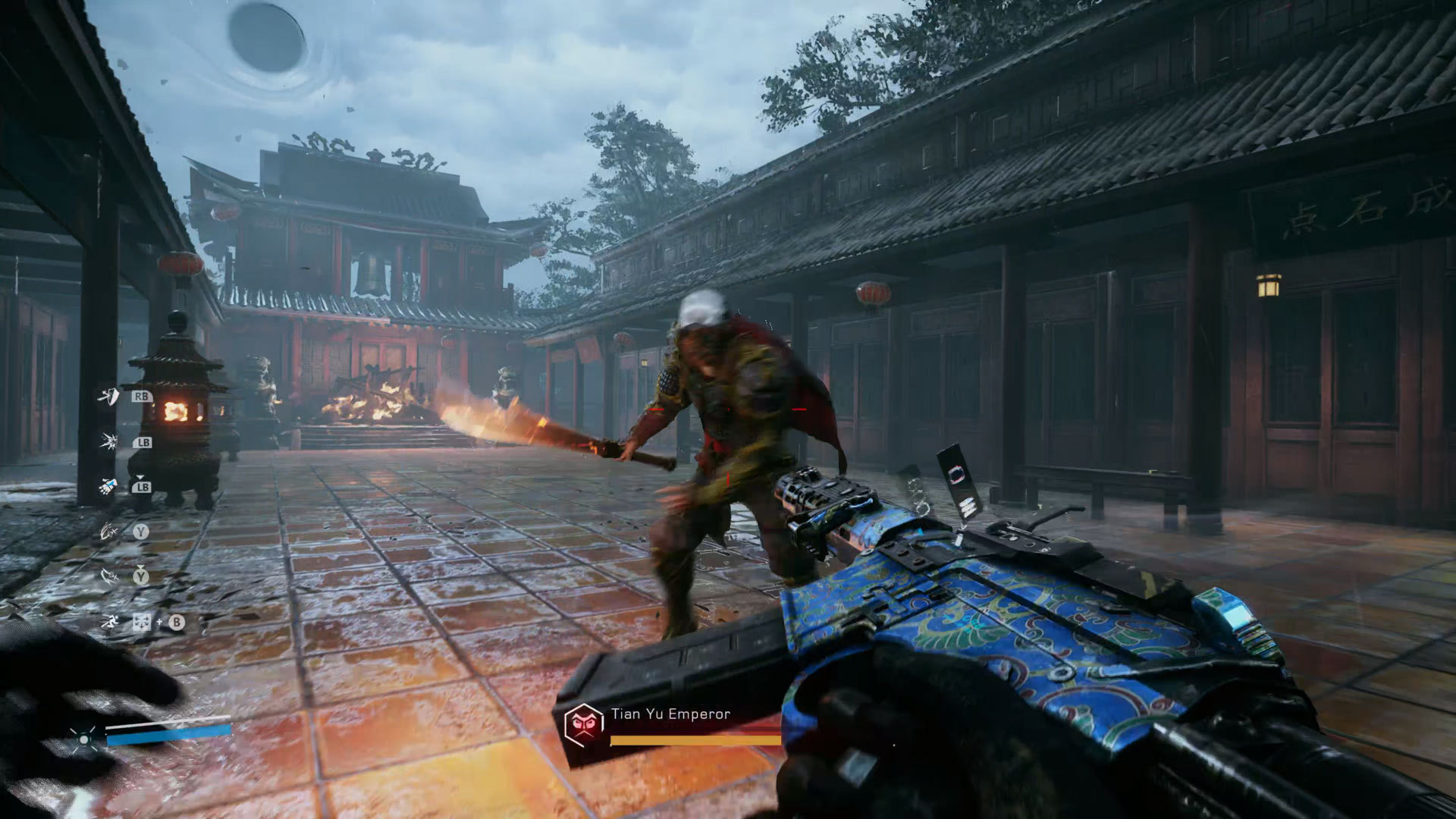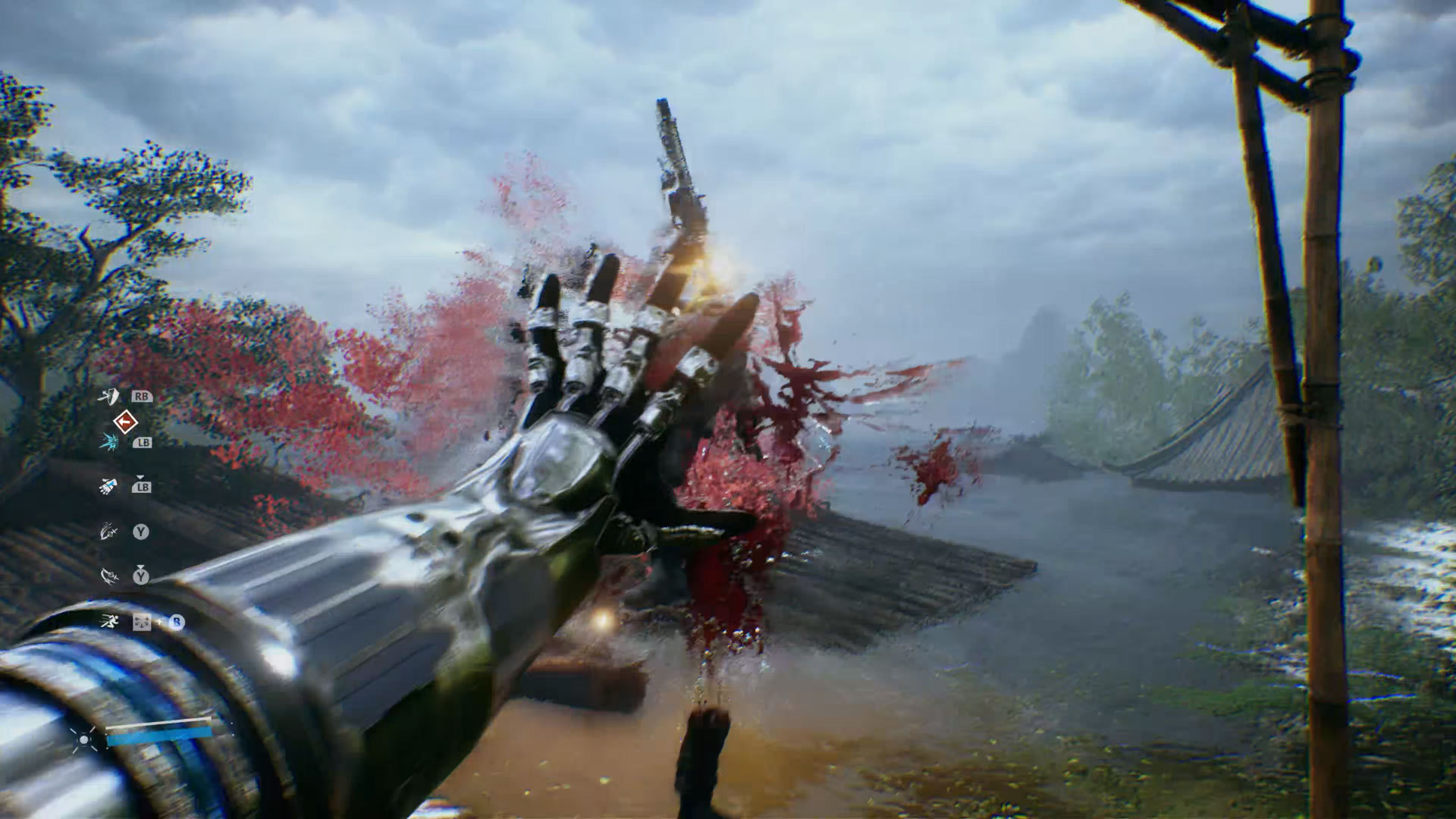Bright Memory: Infinite Xbox Series X Review
Despite its short size, Bright Memory: Infinite's visuals and combat mechanism align it with some of the genre's most notable titles.
Reviewed by Rayan on Jul 22, 2022
Bright Memory: Infinite, a first-person shooter developed by FYQD Studio and released on PC two years ago, now lands on consoles following a successful PC release. The game's over-the-top plot blends modern weaponry, futuristic katanas, and enormous foes inspired by oriental legend. It delivers on its promise of the finest possible gaming and visual experience on Xbox Series X and other current-gen platforms. The extensive work put into the game's technical aspects gives off the impression that it could easily be a AAA title just by looking at it. When playing Bright Memory: Infinite, it isn't easy to imagine that all of this was developed by a single individual.

This developer's work is outstanding and serves as more evidence that Zeng Xiancheng has a significant amount of skill overall. But, of course, having great visuals is not everything. When evaluating the game, the work of a particular developer does not have to be the primary factor that is considered. Bright Memory: Infinite immediately feels like a technological marvel, as it combines elements of first-person shooters with hack-and-slash games to create an extremely fast-paced gaming experience. Because of this, the game becomes incredibly intense, and the controls never get monotonous. It also includes a sporadic bit of platforming and even a little stealth gameplay, although these elements are mostly incidental.
Bright Memory: Infinite follows Shelia, a special agent on a mission to investigate the cause of unusual weather in a Chinese area. However, after Shelia arrives, it is discovered that a black hole is linking two different worlds, and as usual, an evil enemy is working behind the scenes to cause trouble. Shelia is pursued by an anonymous paramilitary group, which will repeatedly obstruct her progress as it seeks some mysterious power. Even though the graphics are nothing short of outstanding, the narrative is, in my opinion, the part that lets the game down the most. You won't learn much about the legendary invaders or the people who created the black hole, but you will witness a lot of explosions, gunfire, and other insane sights by the time the game ends.

Since each campaign takes around three to four hours to finish, and things happen too fast, making it difficult to track who and what you're dealing with because the plot twists and turns so quickly. And the game gives the impression of brief episodes rather than full-length expansions since it's developed by a single person, while a bit more of a concentration on the narrative would make things more pleasant. However, there isn't sufficient information to provide a solid understanding of the story thread. The plot is just enough to help carry the game's distinguishing aspect across each mission: the fighting.
The game is designed like a traditional first-person shooter, so right away, we are greeted by well-executed gunplay that is responsive and has a vibe that is certainly realistic. This will apply to four various sorts of weaponry, including an assault rifle, a heavy rifle, a handgun, and the unavoidable sniper rifle at some point throughout the adventure. We will progressively come into touch with each of these types of firearms as the story progresses. In addition to their traditional mode of ordinary firing, every one of Shelia's weapons will be able to rely on a secondary mode that can be triggered at any moment.
Besides the grenades and firebombs, there are also the tracer bullets and sticky bombs, all of which will considerably increase the offensive capacity of Shelia. Melee combat is also a relatively central part of Bright Memory: Infinite, but like ranged combat, it lacks complexity. When time is of the essence, slashing and throwing swords can be very helpful and rewarding when a strike connects. Again, intuitive weapon and player controls are there throughout, but the game seems a bit limited, even with a skill tree that includes upgrades to weapons and abilities.

Besides the weaponry, Shelia has access to various additional abilities, some of which are unlocked depending on how far she gets through the story. For instance, she entices her enemies toward her, lifts them into the air, and buries them with bullets. Alternatively, she can use a variety of grenades instead of bullets. She also has a mechanical arm that shoots energy waves at enemies or draws them closer to burst in the air. She can also use this power to return enemy bullets to their sources or stun those fighting us at close range.
In a nutshell, there are many options to choose from in terms of strategies to eradicate our rivals, and it is up to us to figure out which approach would be most effective. Bright Memory: Infinite succeeds in being entertaining even though it lacks any form of originality or innovation. These techniques are further supplemented by sprinting in various directions, enabling us to evade the deadliest assaults. In addition, during the gameplay, she gathers jade idols, allowing us to acquire or improve skills for her to control all of the available options while engaging in battle.
Players will be kept on their toes due to the diverse array of enemies that will appear during the gameplay since battle happens so often. You won't likely get bored of fighting against the enemy thanks to the wide variety of weapons and accessories at your disposal. For a first-person action shooter that focuses on picking the proper weapon and ammunition, the intensity of the battle seemed like it had just the right amount of pressure to induce a rush of adrenaline. The game does a great job of keeping various weapons, talents, and abilities in appropriate proportions. Players may dispatch foes with Shelia's sword, blast them with fire shotgun shells, or deliver harm with their technology. The game offers a solution that can be tailored to the present scenario and different playing styles, and it does so by including several distinct enhancements.

Sadly, it's a shame that since Bright Memory: Infinite only lasts around two hours, everything in it is treated so superficially. You won't have time to learn how to employ new attacks, for example, since the final monster will suddenly be there in front of you. You won't even have time to savor the changes that have been made. Because of its concise duration, the game is almost unable to develop anything, including its plot, powers, or upgrades. And while you progress, there is nothing left except the engaging action. You will need to go through the game again if you want more. You can make the game more challenging or change Shelia's appearance, but that's about it. You don't know why Shelia has such powers, why she improves them, or anything else like that since, much like the plot of the game, the improvements are not addressed within the narrative. Additionally, the system for upgrades does not have a great deal of depth, which is tied to perhaps the most significant drawback of the game.
However, because the action is seen from the first-person viewpoint, it has a frantic, up-close-and-personal quality that can be overwhelming. The 60 frames per second (FPS) and the 4K Ultra HD resolution provide a seamless and beautiful visual experience. In addition, fine detail can be observed in the excellent weapons, the frightening enemies, and the great location of Bright Memory: Infinite. The environment has been modeled by real-life locales in China, which lends it an air of authenticity and makes it seem more lifelike. The earthy color palette that the designer used created an unsettling and depressing scene, which contributes to the oppressive atmosphere of your mission and the hopeless connotations it carries. The soundtrack enhances the already impressive images, making the whole experience much more enjoyable. A combination of sound effects and intense music combines well with the game's overall tone. Each component of the audio has been carefully considered, improving the quality of the experience as a whole.
Bright Memory: Infinite has much to offer, and its shooting is consistently fluid. The only problem with such a technically stunning game is that it lasts for an absurdly short amount of time. Despite its short size, the game's visuals and combat mechanism align it with some of the genre's most notable titles. Even though it is missing a few key components that may push it through to greatness, it is also brimming with promise and could be the start of a good series if FYQD Studio fixes some of the game's shortcomings. Even though the main action doesn't last very long, there are a variety of other play styles that players may engage in, which adds to the replay value and duration of the game. What else can you expect from a game that combines a direct action of hack-and-slash gameplay with the first-person perspective of a shooting game?
Azfar Rayan (@AzfarRayan)
Editor, NoobFeed
Senior Editor, NoobFeed
Verdict
80
Related News
No Data.

